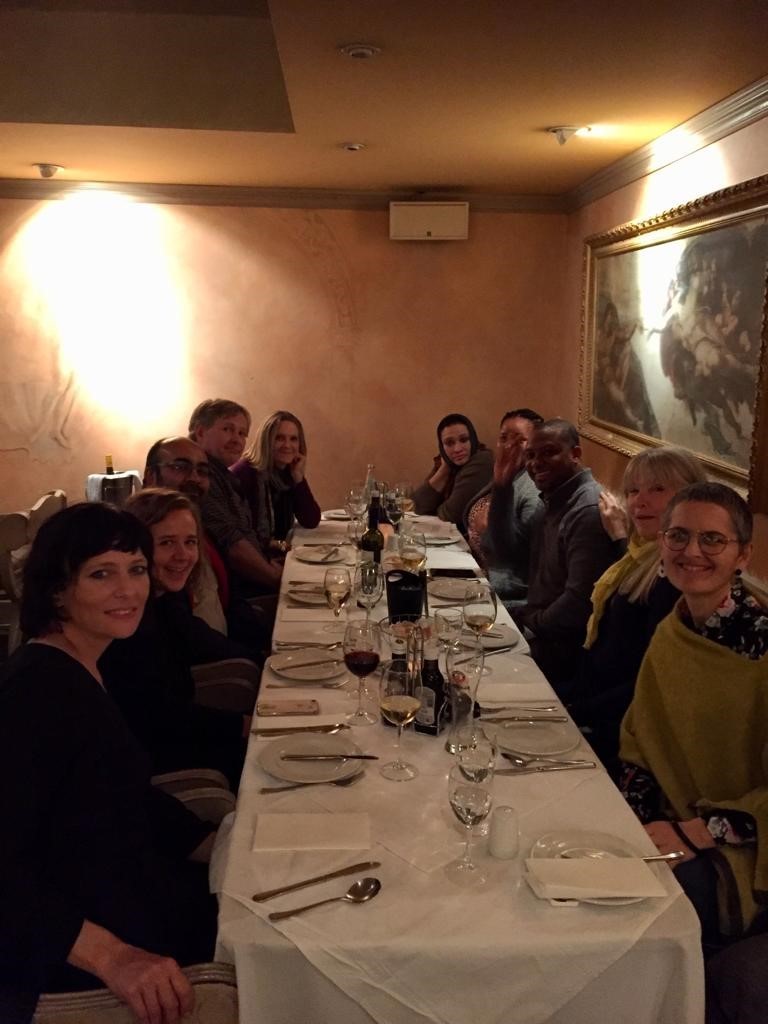First steps towards a supra-institutional archive initiative

In July 2019, the Archive and Public Culture research initiative held the first of a series of three workshops undertaken under the umbrella of a Mellon Foundation-funded, Digital Humanities endeavour. The workshops, to be held between mid-2019 and mid-2020, are designed to explore the possibility of constituting a supra-institutional information- and technology-sharing consortium between three projects that have a shared focus on the persistently neglected archive of the long southern African past before European colonialism.
A key motivation for the proposed consortium lies in its ability, as a region-wide effort, to boost research and public interest in the precolonial history of southern Africa, to support the development of, and to share, new forms of expertise and research infrastructure, and to leverage much-needed funding for this area of enquiry.
The three projects are the Centre for Curating the Archive’s ongoing curating of digital collections, and integration with teaching and public display, centered on the Bleek and Lloyd archive of |xam, !kung, Kora and N|usa materials; the Five Hundred Year Archival exemplar dealing with the eras immediately before colonialism in the wider KwaZulu-Natal region; and the Metsemegologolo project for the development of a digital research and teaching tool for the origins of urbanisation in Southern Africa, focussed on early Tswana urban spaces straddling the South Africa-Botswana border. The three projects deal with much the same periods in time and all three deal with multiple mediums, that is, text, images, sound notably in the form of recorded oral material, material culture, landscape and environmental data of various kinds.
Interlinked, the three projects would have a number of compelling features. The first is the way in which together the southern, eastern and western poles that the projects constitute offer the prospect of overcoming narrowly regional foci, and the persistent idea of separate San, Nguni and Sotho-Tswana worlds, fields of study and archives. Interlinking would facilitate research opportunities across the three categories, allowing new connections to be made and cultural contiguity across southern Africa to come into view. In all three cases the projects straddle South African borders – Namibia, Swaziland and Botswana – productively escaping latter-day national limits. A simple interlinking would allow the three projects to become the framework of a region-wide archive pertinent to the history of the late independent period.
The first workshop, held on the 10th and 11th of July, commenced with a series of introductory presentations, followed by discussion, by each of the three projects, as well a presentation on Low-Resource Systems and Sustainability by the UCT professor of Computer Science specialising in Digital Archives and Libraries, Hussein Suleman, and an input on the African Rock Art Digital Archive (SARADA) located at Wits. The discussions covered, amongst other things, presenting material in a digital archival format and using the materials to develop on digital research tools, online curations and exhibitions and educational materials.
The software challenges involved in working digitally were explored extensively. This included consideration of limitations with the premier open source archival software, ATOM, and the impossibility of customisations being supported in further releases of the open source versions. It was also brought home by the experience of SARADA in being prisoner to an expensive software. The presentation by Hussein Suleman dealt directly with this issue, making a powerful case for the use of resilient low-resource software options with long shelf life. The resilience of the CCA offered a case in point.
The wide-ranging discussions raised a series of questions that will form the basis for a second meeting, scheduled for October 2019 at Wits.

Dinner with Afridig group after July Workshop. Photo courtesy of Debra Pryor.